Mapping, by 2026, the real needs of patients with chronic and advanced disease, in the municipality of Aljezur, is the objective of the «Palliare+» project, whose main mentors are the nurse Rui Correia, as well as the nurse Graça Pedro, who is the head of the Community Care Unit (UCC) Ribat.
Under the motto “Knowing how to identify for better care”, the project arose within the scope of the master's degree in nursing at the Escola Superior de Saúde de Beja, which Rui Correia is doing.
"Right now, I'm here on an internship at UCC Ribat, at the Aljezur Health Center, and the objective, while studying for a master's degree, was to develop an intervention project for a need I found." And the nurse identified that one of these "needs" was to make known what Palliative Care is, not only among the general population, but also among health professionals themselves. And then find out how many people need this care.
Right from the start, it was identified that it was necessary to «act on one of the barriers that have delayed citizens' access to Palliative Care, which is precisely the lack of training of health professionals. WHO itself recognizes that one of the important barriers is lack of training. And she herself recommends that all health professionals should have basic training. So we acted there, in partnership with the Palliative Care teams of the Portimão unit of the Algarve hospital centre, and also with ACES Barlavento, the community team».
And that was how, in June and July, a 21-hour training action took place, open to all health professionals who traveled to Aljezur for this purpose.
Then, in an initiative more aimed at the population in general, Espaço+, in Aljezur, is hosting, until the end of August, a photography exhibition, which, in images of great quality and, above all, great sensitivity, captured through the artistic eye of nurse Ana Sousa, from Palliative Care at the hospital in Portimão, it shows the daily lives of patients and professionals who, at various levels, take care of them.
Rui Correia stresses that Palliative Care «is a right that we all have. But people often don't even know it».
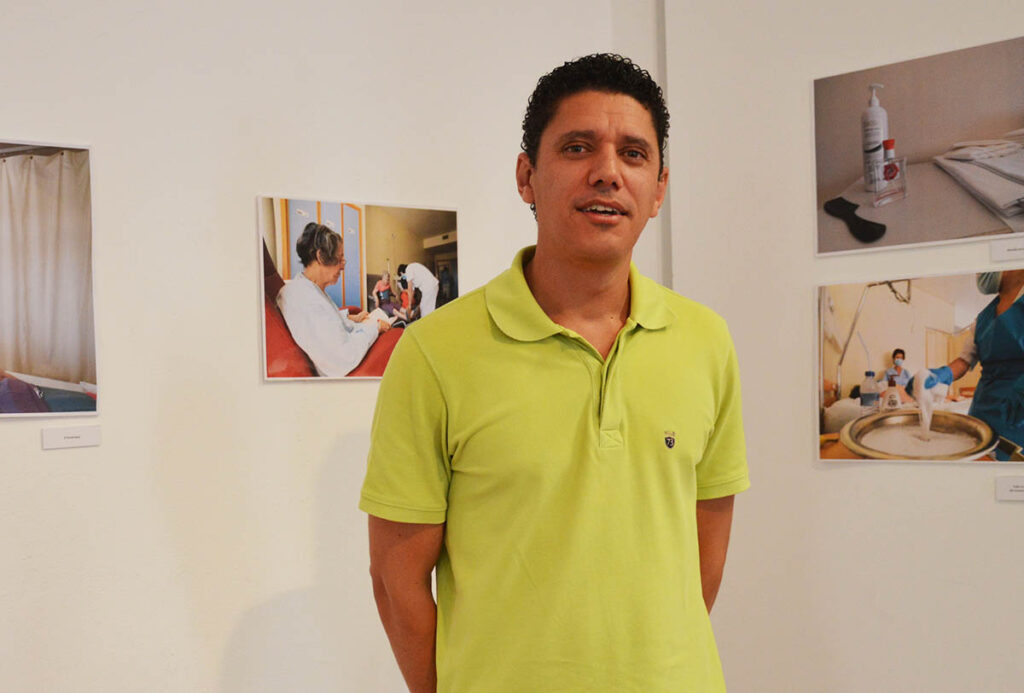
«The objective of the exhibition is to demystify the concept of Palliative Care. Unfortunately, people still associate palliative care a lot with death, with end-of-life care... And it's also our fault, the health professionals, that only when we think there is nothing left to do do we consider using palliative care ».
But the nurse understands that “these are wrong concepts, which must be fought”. The objective of this exhibition is «to raise awareness of the population, to raise awareness of the importance of this care at the end of life and beyond. And for people to be better informed and to complain, because, in the end, this turns out to be a right that all of us should have access to. And it is enshrined in the Portuguese Constitution. But many of us are unaware of this access to health as a right in case of need».
Rui Correia explains that Palliative Care “includes end-of-life care, but it doesn't stop there. That is, they are intended for all people who have an advanced chronic disease. It could be years. And our job is precisely that these people have access to palliative care at an earlier stage and not just in the last weeks of life. Because then, it is difficult to get to the essence of palliative care, which is to promote quality of life, to dignify the end of life. The focus is always on quality of life, but also on preventing and alleviating suffering. And that takes time, it's not easy».
According to the World Health Organization (WHO), Palliative Care "is health care" that is intended "for people who have an incurable disease". It is also “care that improves the quality of life of patients and their families, through the prevention and relief of suffering”.
In addition, palliative care does not just take care of the body, as "it is an effective response to physical, psychological, social and spiritual problems."
And who can receive this care? Anyone who suffers from a chronic and advanced disease, such as cancer, advanced dementia, chronic lung, cardiac, neurological, liver or kidney disease.
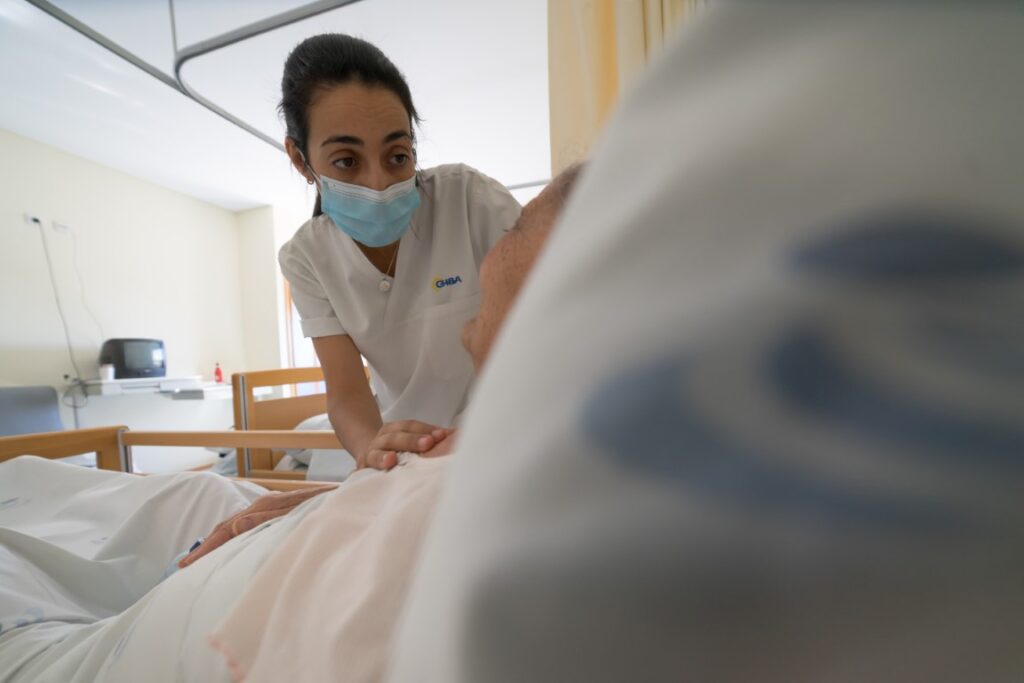
In the Algarve, within the scope of the National Health Service network, there are only 10 inpatient beds in Palliative Care at the hospital in Portimão. There are then two in-hospital teams, one in the Portimão unit, the other in the Faro, “which support the entire hospital, but can also receive patients from the community for consultations”. There are also three community palliative care teams, one for each Health Center Group, that is, the ACES Barlavento team is headquartered in the Lagoa Health Center, the ACES Sotavento team in Tavira and the Central in São Brás de Alportel.
in the hospital of Faro, the largest in the region, does not exactly have an inpatient unit, but only “some palliative care beds within the oncology service”.
But, stresses the nurse Rui Correia, «for me, this is not palliative care. One can take a palliative approach, palliative actions, but they are not palliative care. Therefore, the hospital of Faro it would need an inpatient team'. And the community teams themselves, "would need a reinforcement, because they have a wide coverage area".
The recommended is to have a community team for every 100 inhabitants. “Right now, we have about 150/160 thousand inhabitants in Barlavento, so we would need a team and a half here…but we only have one team”.
However, stresses the nurse, “not all patients with palliative needs actually need the support of specialized teams. That's why we started the training of professionals, so that they are awake, to be able to assess and identify patients in need of palliative care, but so that they can also give a first response to that patient. In other words, the first palliative approach, so to speak, should always be by the primary care team. That would always have to be the first answer».
Only then, if the measures or actions implemented with the patient and family are not having an effect, "we can always liaise with the specialized teams, either through telephone consultation, or even by calling the teams on the ground and providing this care the population".
One of the issues that the new approach to palliative care tries to demystify is that those who need this support do not necessarily have to be taken to a hospital
«In Portugal, a study carried out in 2017 revealed that most people liked to die at home», recalls Rui Correia. But, for this, "it is also necessary that they be given the conditions to do so".
This is, in his opinion, one of the strengths of the community team, which can “go to people's homes, in conjunction with primary health care and with the family”.
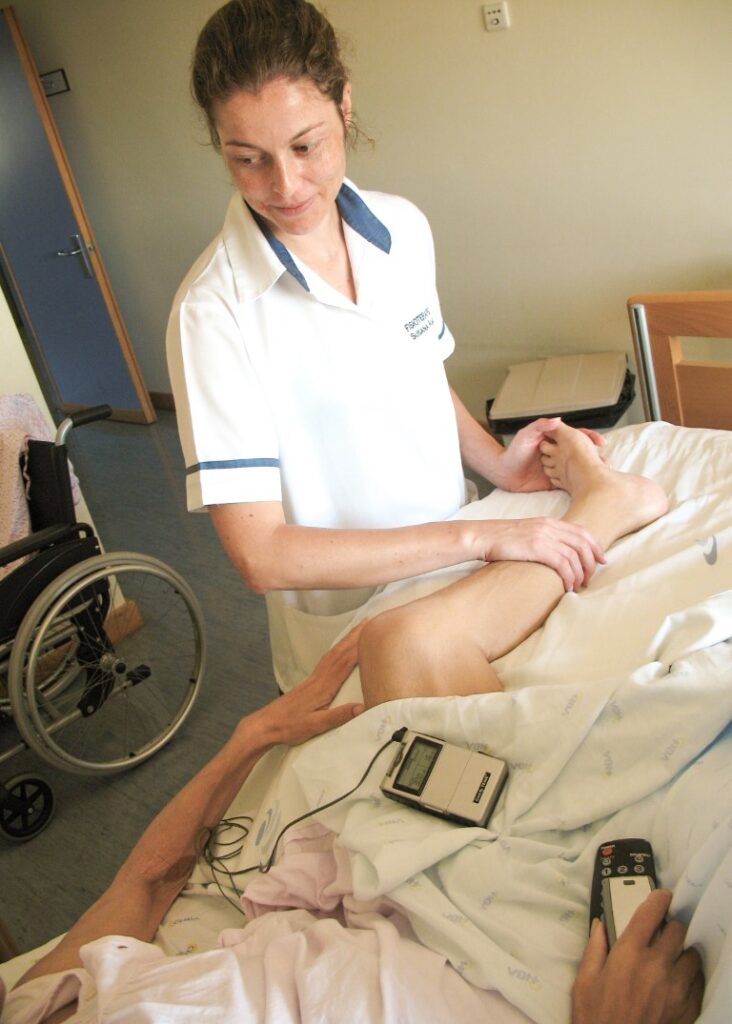
With the aging of the population, in Portugal the needs for palliative care will grow. However, stresses Rui Correia, strictly speaking, it is not known how many people need this intervention throughout the country.
«What is known today is that the 2018 data from the Portuguese Observatory for Palliative Care pointed to around 110 people in need of it. In reality, both the Observatory and the Portuguese Association for palliative care think that this number is too low and believe that the needs will be greater».
As Aljezur is one of the oldest municipalities in the Algarve, the project of mapping local needs takes on greater importance. What the Palliare+ project proposes “is that, by 2026, we will find people with chronic diseases, we will identify, as soon as possible, whether these people really need palliative care or not, so that the Health Center team can start a palliative approach as early as possible. This is our focus on the project».
So far, and because the survey only started in August, 18 people in need of palliative care have been identified in the parish of Odeceixe, based on the data platform of the Health Centre, but after visiting and evaluating in the field. «But we haven't finished the parish yet», warns the nurse, who reveals that the survey will be carried out from parish to parish, in all of them.
Based on an assessment scale developed by the Catalonia Institute of Oncology, «more or less 10% of the population of the municipality of Aljezur will need palliative care. If we think that there are 6 residents, we are talking about 600 people».
And if a person from Aljezur has an incurable chronic disease or a family member in this situation, what should they do? Should you contact the Health Center?
“Yes, you should talk to your doctor or family nurse. They are the best people to make the first assessment and start the palliative approach». In Aljezur, all doctors and nurses have “basic training”, so they “no longer have an excuse” for not referring patients and their families well.
Rui Correia admits that the lack of knowledge about what Palliative Care is and the structure that exists to provide it in the Algarve has been one of the «great barriers», even among health professionals.
Precisely to end this “vicious cycle”, at least in Aljezur, this training course took place.
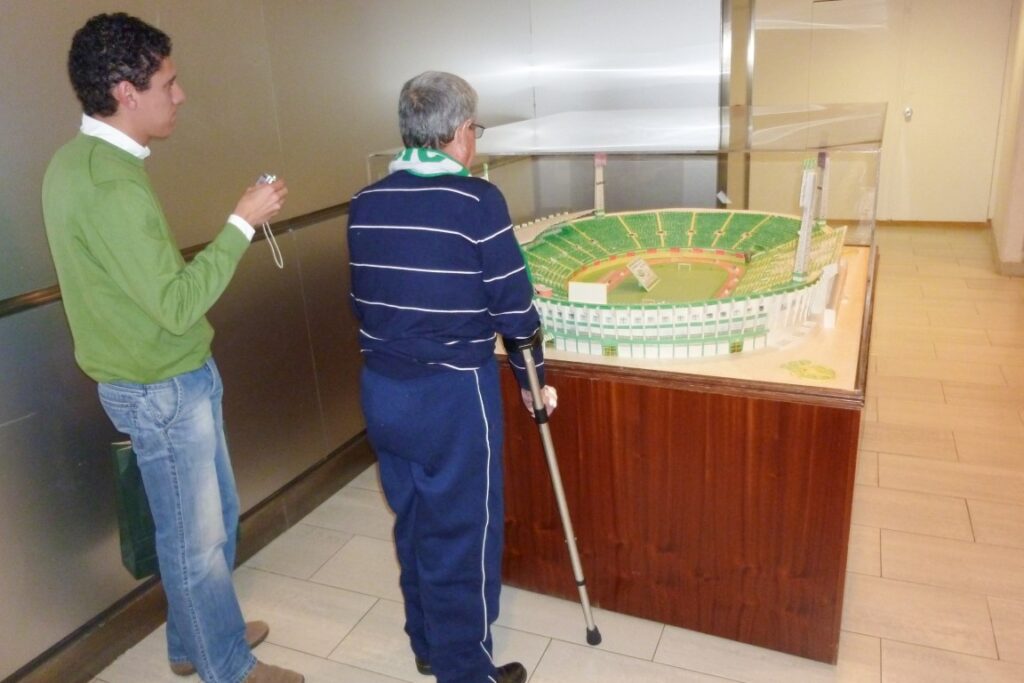
Nurse Rui Correia is about to finish his internship at the Ribat Community Care Unit, in Aljezur, at the end of August. But the needs mapping project will continue, until 2026, through the nurse Graça Pedro, who is responsible for the UCC.
One of the dreams of Rui Correia, 39, born in Olhão, but working at the Lagos Health Center, is that the Palliare+ project can go beyond the borders of the Costa Vicentina municipality. «Our ambition is to take this project to other units that show interest».
It is certain that Portugal needs to invest, and now, in Palliative Care. «The OECD tells us that, in 2050, Portugal is the oldest country in Europe and the third oldest country in the world. If we now already have the problems we have with aging, if we think about 2050, the consequences will be much worse if we don't do anything», he stresses.
“And this is also a warning for an investment by the government, because until recently, for several months, palliative care was without its National Commission functioning. And this is who leads or who develops strategic plans for palliative care. If we don't have anyone in charge, giving guidance, it's complicated to develop palliative care», concludes nurse Rui Correia.
Finally, the nurse points to two of the photographs in the exhibition on display in Aljezur and says: «palliative care can even involve helping people to fulfill a dream». In one of the photos, there is Rui Correia with a patient who, with the help of a nurse and a physiotherapist, went to Lisbon to fulfill his dream of visiting Sporting's new stadium.
Photos: Nurse Ana Sousa
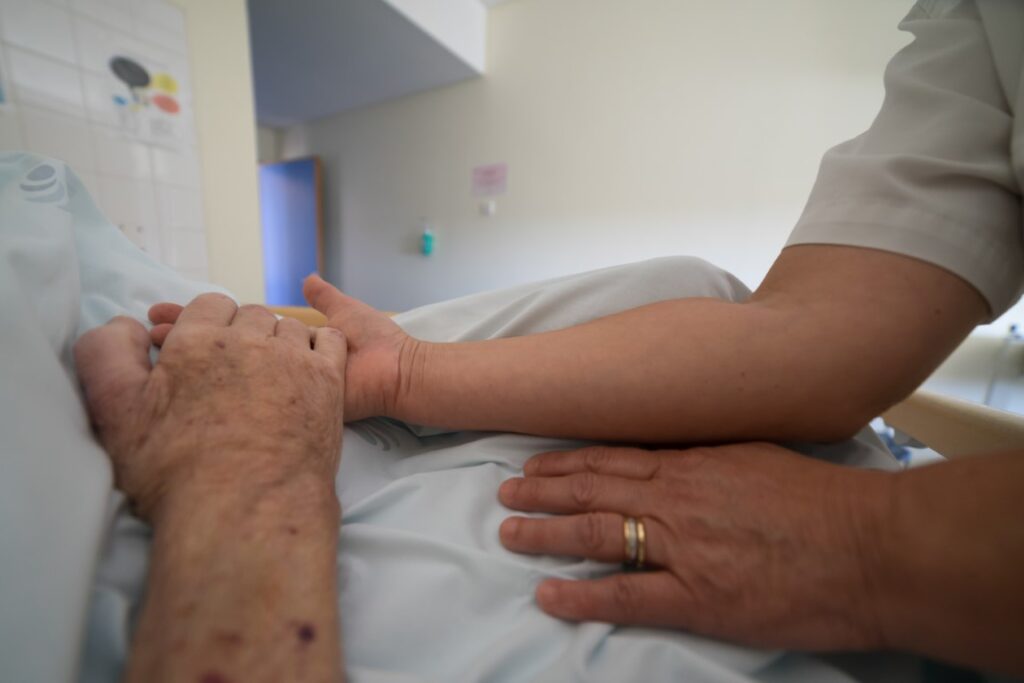
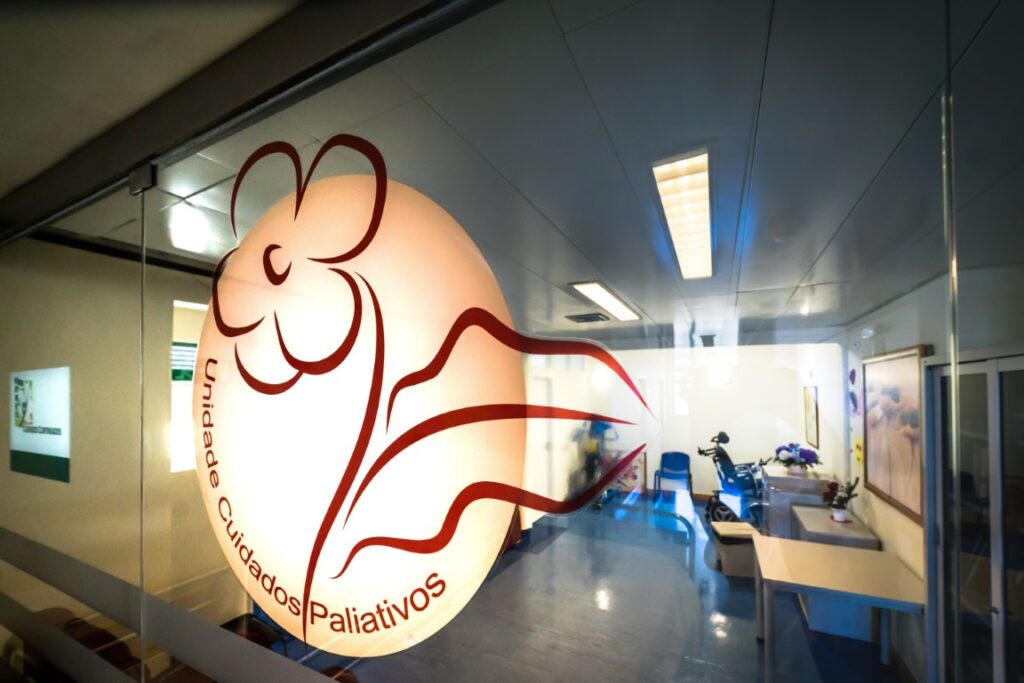
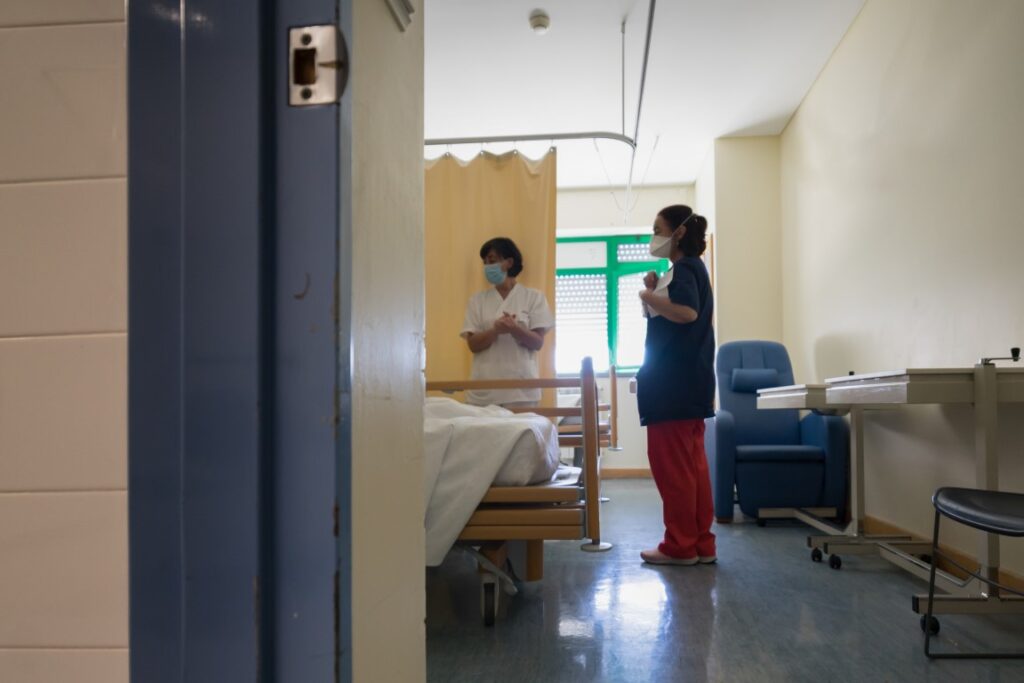
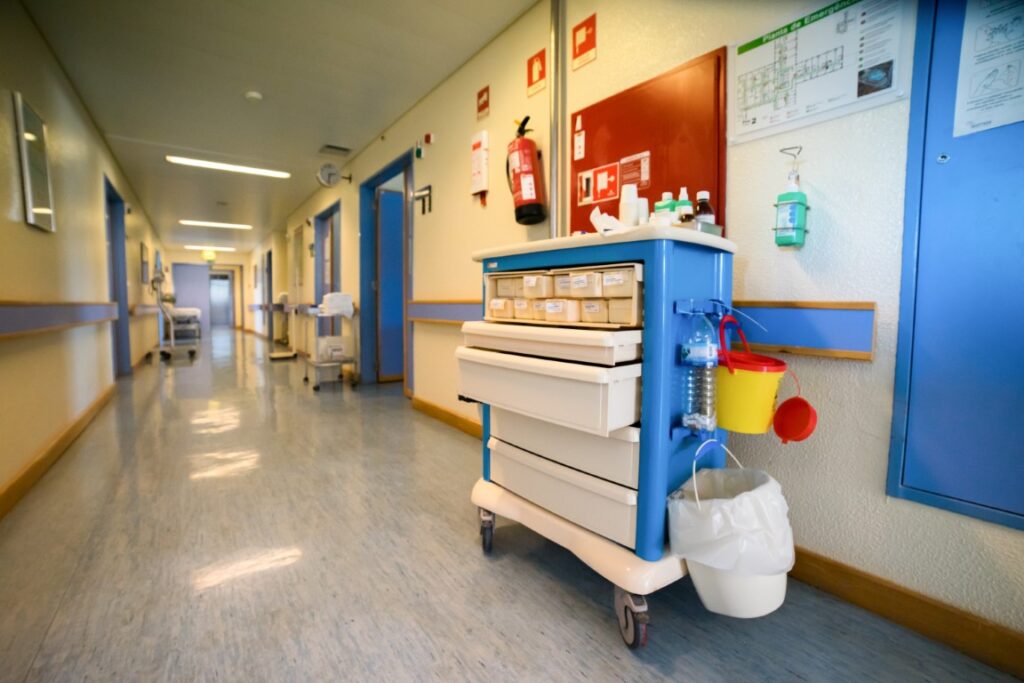



















Comments